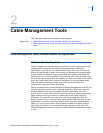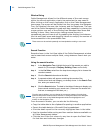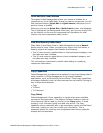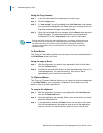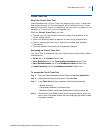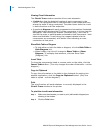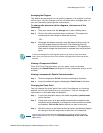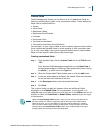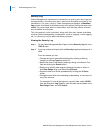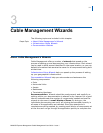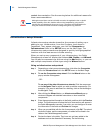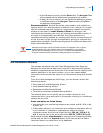
Cable Management Tools 2-9
MA4000 Expense Management Cable Management User Guide - Issue 1
Custom Fields
Cable Management allows you to define up to 10 additional fields for
tracking and displaying data in the component tables. These additional
fields can be customized for:
• Assets
• Asset Ports
• Backbone Cables
• Backbone Pairs/Strands
• Contacts
• Horizontal Links
• Termination Hardware
• Termination Hardware Ports/Positions
For example:
A user might create a new computer type and then define
three customized labeled fields to track aspects of this computer type.
Or, a user could add a new phone type and define seven customizable
fields to track specific data about that phone type.
Creating customized fields
Step 1 From the Main Page, click the Custom Fields link in the TOOLS menu.
- OR
-
From within the Cable Management application, on the Det
ail View of
the component category for which you wish to add custom fields, click on
the ellipse (. . .) button next to the Type field.
Step 2 When the Customizable Fields window pops us, click the Add button.
Step 3 A new row will be added to the table in the window. Enter the information
for the new field in the columns of that row.
Step 4 In the Description fields, enter the desired field name.
Step 5 Click Save.
The custom fields you add will appear either as additional fields
di
splayed on the Detail View for a component, or will appear in a
separate pop-up window when you click the box in the Other column of
a table in either the List View or Detail View, depending on the type
of component.
When the Customizable Fields window is open, you can use the drop-down list at
the top to switch to a different component type for which you want to add custom
fields. At any time, you can add fields to a type (up to the ten-field limit), re-label a
field, and add or remove types. Before you add a field, it's a good idea to review the
existing data in the Customizable Fields window, as you may be able to use types
already added, thus avoiding unnecessary duplication.
NOTE



